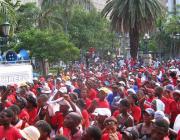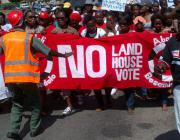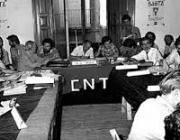Mexico: the insurrection of Ixmiquilpan
The stores remain closed until the workers have better salaries and that, in agreement with the managers and bosses, products of the campesinos of the municipality are bought and distributed in the stores. The banks only open every three days so that the people can collect or send money. The police aren’t welcome.
Slovakia's unemployed riots of 2004
In February and March 2004, the Roma unemployed in Slovakia responded to cuts in welfare provisions with demonstrations and looting. The state's response involved the greatest mobilization of police forces since the fall of Stalinism. Although the unrest was crushed, it managed to secure better conditions for all unemployed in Slovakia.
The rule of law and the working class: anti-corruption protests in Romania
In the following text we are going to try and express an anarchist communist assessment, in as much a coherent manner as it is possible at the present time, of the recent protests against some of the decisions made by the governing party and the manner in which these were perceived as an atack on the “rule of law”, the post-state capitalist trajectory of Romania, and on the “progress” made in the last 27 years.
Dis/placing political illiteracy: the politics of intellectual equality in a South African shack-dwellers’ movement
The production and abandonment of surplus people also depends on rendering them as improper political subjects. In the prevailing political discourse, poor people’s struggles are deemed less than political through notions such as the idea that all protest is related to the pace of “service delivery” or accusations of violence, as well as often explicit characterizations of dissenting people as ignorant. Such discursive moves imply and reinforce a conception of the poor black majority as unable to think and practice their own politics; that is, as politically illiterate group of people.













